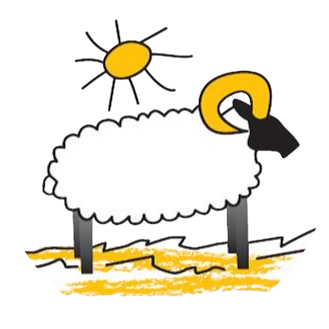
Farsley Westroyd Primary School & Nursery
Science
At Farsley Westroyd, our science curriculum is designed to ignite curiosity, foster understanding, and inspire all learners to explore the world around them. Our vision is rooted in creating a positive, inclusive, and stimulating learning environment where every child can thrive as a young scientist.
We strive to instil a lifelong love of science in our pupils, encouraging them to ask questions, think critically, and explore scientific concepts with enthusiasm. By presenting real-world applications and encouraging hands-on investigations, we ensure that pupils recognise the importance of science in their everyday lives and future aspirations. Our aim is for every pupil to see science not only as a subject but as a lens through which they can view and understand the world.
Our curriculum is carefully aligned with the National Curriculum, ensuring that pupils build a strong foundation of scientific knowledge and skills across key disciplines: biology, chemistry, and physics. Through the Developing Experts scheme, we deliver high-quality lessons that captivate learners and provide access to expertise from leading scientists and industry professionals. This comprehensive scheme supports children from Early Years through to Year 6, ensuring a consistent and progressive approach to science education. By introducing scientific concepts early and building on them year by year, we ensure that children deepen their understanding, skills, and confidence as they progress through school.
A key aspect of our approach is building Science Capital—a concept that emphasises increasing a child’s engagement with and understanding of science in relation to their own lives, communities, and the wider world. By showcasing diverse role models and making science relevant to pupils' experiences, we aim to strengthen their confidence in seeing themselves as capable scientists. Science Capital also includes fostering connections with families, communities, and cultural contexts to broaden pupils’ horizons and ensure they feel empowered to pursue scientific inquiry.
At Farsley Westroyd, we are proud to have achieved the Primary Science Quality Mark (PSQM). This nationally recognised award celebrates our commitment to continually improving and developing our science curriculum. It highlights our dedication to embedding high-quality science teaching and leadership, ensuring that scientific enquiry remains at the heart of our school ethos. Achieving the PSQM reflects our ongoing efforts to inspire pupils, engage them with meaningful learning opportunities, and foster a deep appreciation of science.

Our use of Developing Experts enriches this mission by providing engaging, well-structured lessons that include clear learning objectives, interactive resources, and practical activities. The inclusion of real-world examples and expert-led insights helps pupils grasp the relevance of science in shaping the future, from medical breakthroughs to environmental sustainability. With its scaffolded approach, Developing Experts ensures all pupils—regardless of their starting point—can engage with and succeed in science, supporting them to reach their full potential.
We recognise the diverse needs of our learners and adapt our teaching to ensure all pupils can access and enjoy science. By fostering collaboration, discussion, and critical thinking, we encourage pupils to work together to test hypotheses, evaluate evidence, and share their findings.
At Farsley Westroyd, we are committed to creating a science curriculum that is exciting, meaningful, and empowering. By equipping pupils with the knowledge, skills, and curiosity to explore and innovate, we prepare them to thrive in an ever-changing world and contribute to shaping its future.
Subject Strands
In our comprehensive science curriculum, we provide pupils with a robust framework that explores the fascinating diversity of scientific concepts and phenomena. Organised into key strands, Animals Including Humans allows pupils to study the structure, function, and health of the human body alongside the biology of animals, fostering an understanding of life processes and the interdependence of living organisms. In Living Things and Their Habitats, learners investigate the classification, adaptations, and ecosystems that sustain biodiversity, inspiring respect for the natural world.
The Plants strand enables pupils to explore plant life cycles, growth, and their vital role in ecosystems, deepening their appreciation of the environment. In Materials/States of Matter, students delve into the properties of materials, changes in states, and the science of reversible and irreversible changes, linking these concepts to real-world applications. Through Rocks and Fossils, pupils discover Earth's geological history and the processes that shape our planet, sparking interest in natural sciences.
In Electricity, pupils learn about circuits, conductors, and electrical safety, empowering them to understand and utilise this essential form of energy. The Earth and Space strand offers a journey through the solar system, the Earth's movements, and the vastness of the universe, igniting wonder about our place in the cosmos. Through Seasonal Changes, younger learners observe and reflect on the cycles of nature, building an early connection to science.
The Sound strand allows pupils to explore vibrations, sound waves, and hearing, linking physical science concepts to everyday experiences. In Light, learners investigate how light travels, reflection, refraction, and shadows, enhancing their understanding of vision and optics. Forces and Magnets introduces concepts such as gravity, friction, and magnetic fields, encouraging curiosity about the forces that govern movement and interaction.
In Evolution and Inheritance, pupils explore the theories of adaptation, natural selection, and genetic inheritance, deepening their understanding of the history and diversity of life on Earth. For our youngest learners in the Early Years Foundation Stage, the Understanding the World strand provides opportunities to investigate and make sense of the natural and physical world around them. This strand fosters curiosity and enquiry, laying the groundwork for future scientific learning.
Our science curriculum ensures pupils develop a well-rounded understanding of these strands, fostering a deep curiosity and equipping them with the skills and knowledge to navigate and appreciate the wonders of science in their everyday lives.
Underpinning our curriculum are our key principles of
ENJOY, ACHIEVE, BELIEVE, TOGETHER
ENJOY
At Farsley Westroyd, we embed the principle of Enjoy into our science curriculum by creating opportunities for pupils to engage in hands-on investigations, interactive experiments, and explorations of the world around them. We spark curiosity by linking science topics to real-world contexts, encouraging pupils to see the excitement and relevance of their learning. Our use of the Developing Experts scheme enhances this experience by introducing pupils to inspiring role models in science and showcasing the fascinating ways science impacts everyday life. Collaborative investigations foster a sense of wonder and enjoyment, making science lessons a highlight of the school week.
BELIEVE
At Farsley Westroyd, the principle of Believe is central to our science curriculum, where we aim to nurture every child’s confidence in their ability to think critically and engage with scientific inquiry. We create an environment where pupils are encouraged to ask questions, take risks, and learn from their mistakes. By celebrating the achievements of scientists from diverse backgrounds, we show pupils that science is for everyone and that they, too, can succeed in it. Building Science Capital reinforces this belief, helping children connect their learning to their own lives, communities, and aspirations, empowering them to see themselves as future scientists.
ACHIEVE
At Farsley Westroyd, the principle of Achieve is embedded in our science curriculum by ensuring that all pupils are supported to reach their full potential. We use a progressive curriculum that builds knowledge and skills over time, enabling pupils to develop a deep understanding of scientific concepts. Through high expectations, engaging lessons, and practical opportunities to apply their learning, we help children build resilience and celebrate their progress. Our achievement of the Primary Science Quality Mark reflects our commitment to excellence, demonstrating that every child can succeed in science with the right support and encouragement.
TOGETHER
At Farsley Westroyd, the principle of Together is reflected in the collaborative nature of our science curriculum. Pupils work in teams to investigate questions, test hypotheses, and share findings, fostering a sense of community and mutual respect. Group activities encourage children to learn from and support one another, demonstrating the value of diverse ideas and perspectives. By working collectively to solve problems and explore the wonders of science, pupils develop communication and teamwork skills, reinforcing the idea that success is a shared journey that brings everyone closer together.